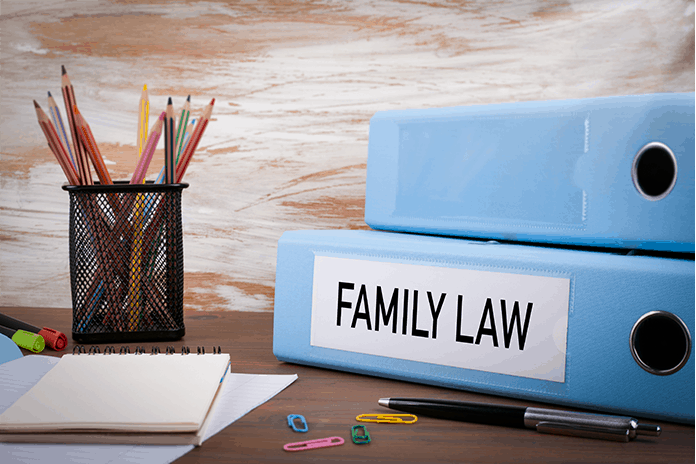So your marriage isn’t what you had hoped it would be… Or your spouse is not who you want to spend your life with…
You’ve thought about it… Slept on it… Talked to your friends about it…
And you’ve decided it’s time for divorce.
The good news is, that is absolutely an option to regain your happiness! The bad news is, there is a process you have to follow to dot all the ‘i’s and cross all the ‘t’s before you can look forward to a life of freedom.
That process starts with filing a complaint for divorce. On that complaint will be a spot for you to fill out the “grounds for divorce”, and that answer is going to mean different things for your process.
I can hear you from here… “grounds?? what the heck does that mean??”
Read on…
What does “grounds for divorce” mean?
Grounds for divorce is a legal term that essentially means the reason for your divorce, and the circumstances under which it can be granted. Remember, a marriage is a “legally binding contract” so the only way to dissolve that contract is to have a court do it. Legal in -> legal out.
Fun fact: In New Jersey, the term ‘divorce’ and ‘dissolution’ may be used interchangeably, though the court prefers ‘dissolution’. For a marriage, they mean the same thing.
So when you go to court and tell them you want to separate from your spouse, “grounds for divorce” is why you want to separate.
Important Attorney Note: When filing your complaint for divorce, you must choose either “no fault” or “fault” in regards to your spouse’s conduct and the reason for divorce. That said, just because you choose the “fault” option, the divorce process will still hinge on an equitable process.
Keep in mind, every case is different and your spouse’s actions may put you in the minority. Feel free to take advantage of our free consultation and we can discuss it.
Recognized Grounds for Divorce in New Jersey
The grounds for a New Jersey divorce are codified (written down and voted on) in the New Jersey administrative code 2A:34-2. They are (in order of appearance):
Quite a list. Let’s break each one down.
Adultery (“Fault”)
Adultery is one of those things that can irretrievably damage a marriage on the spot. Regardless of whether the cheating spouse came clean to the non-cheating spouse, or the affair was discovered or found out through “digging”, the damage is usually permanent.
Divorce due to adultery can be among the most emotionally charged and complex types of divorces, specifically because of the deep betrayal and complete disregard of the “innocent” spouse. There is also the possibility that the “innocent” spouse may want to use the divorce process as a way of “punishing” or “getting even with” the cheating spouse…
Take it from us… that generally doesn’t work out.
While the choice for grounds rests entirely with the filing spouse, choosing the “fault” option for adultery may significantly lengthen the divorce process and introduce additional complexity. That, of course, increases the financial cost of the divorce.
Important Attorney Note: Just because you file a divorce citing adultery, doesn’t mean a landslide of assets in your favor. Remember, the court will always try to maintain “equitable” in their decisions. We can also look to the NJ Supreme Court case Mani v. Mani for guidance:
“We hold that marital fault is irrelevant to alimony except in two narrow instances: cases in which the fault has affected the parties’ economic life and cases in which the fault so violates societal norms that continuing the economic bonds between the parties would confound notions of simple justice.”
Willful and continuous desertion for 12 or more months (“Fault”)
This one is fairly straight-forward and relies on all four of these factors:
- Your spouse left the marital home and is physically living somewhere else for 12 continuous months,
- You did not agree to this departure,
- You did not cause this departure
- While gone, your spouse failed to support you, your kids, and the household.
So if your spouse up and leaves, without you agreeing to it, and establishes a residency somewhere else for 12 continuous months, and provides no support… That’s martial desertion.
Extreme cruelty (“fault”)
This one sounds… ominous.
Extreme cruelty means all acts of physical violence and mental cruelty that are a danger to your health, safety, and well-being, or make co-habitation unreasonable. The actual full list of factors that equate to extreme cruelty is very long…
But here are some examples of the major ones:
- Financial hardships such as, credit problems, dispute over control of finances or neglect of payments.
- Alcohol, drugs or gambling.
- Sexual problems or abuse.
- Physical abuse.
- Mental or emotional instability.
- Criminal tendencies or convictions.
Important Attorney Note: In order to cite “extreme cruelty” as the grounds for your divorce, you will have to revisit all the unpleasant memories of the events, and be able to explain them to others. And the truth is that it does not even affect any decision regarding support or the division of property, unless of course the hardship in question resulted in one spouse wrongfully depleting marital assets, etc.
Separation (“No Fault”)
If you and your spouse just can’t stand each other, and agree to live apart for 18 continuous months… that’s a separation and can be cited as grounds for a no-fault divorce.
The difference between this and desertion is that both of you agree to the separation.
Voluntarily-induced addiction to drugs or habitual drunkenness (“Fault”)
This reason for divorce is defined in NJ Administrative code as:
“Voluntarily induced addiction or habituation to any narcotic drug as defined in the New Jersey Controlled Dangerous Substances Act, P.L.1970, c.226 or habitual drunkenness for a period of 12 or more consecutive months subsequent to marriage and next preceding the filing of the complaint”
Title 2A:34-2, NJ Revised Statutes
The important thing to remember about this reason is that it may not affect the outcome of your divorce by itself. What may be a factor is that people with substance abuse problems generally also display traits of dishonesty, recklessness, cruelty, and impulsive behavior.
Those factors may play a role.
Institutionalization for mental illness
If your spouse has been institutionalized for 24 consecutive months for mental illness… That is an accepted reason for divorce.
Imprisonment
If your spouse is incarcerated for 18 months or more, that is certainly an acceptable reason to seek divorce.
Important Attorney Note: If you fall into this category, we strong advise you to seek the advice of an attorney. Divorcing an incarcerated spouse is incredibly complex because of their status, and navigating that process can be daunting. Take advantage of our free consultation and we can discuss your case.
Deviant sexual conduct performed without consent
This is also self-explanatory but comes with a few caveats worth discussing.
Irreconcilable differences
This is the most commonly used grounds for divorce in New Jersey.
In the state of New Jersey, more than half of all divorces cite irreconcilable differences as their basis. If it is possible to avoid conflict and dredging up of the past, that is when the all-too-familiar ‘irreconcilable differences’ makes an appearance. A divorce based on irreconcilable differences is a no-fault divorce. It is a minimal conflict solution. However, there are stipulations that apply to both spouses:
- Twelve months of continuous residence in NJ, prior to filing divorce papers;
- Swearing, under oath, to at least six months of irreconcilable differences;
- Certainty that marriage should end based on said differences; and
- Acknowledgment that there is no chance for reconciliation.



